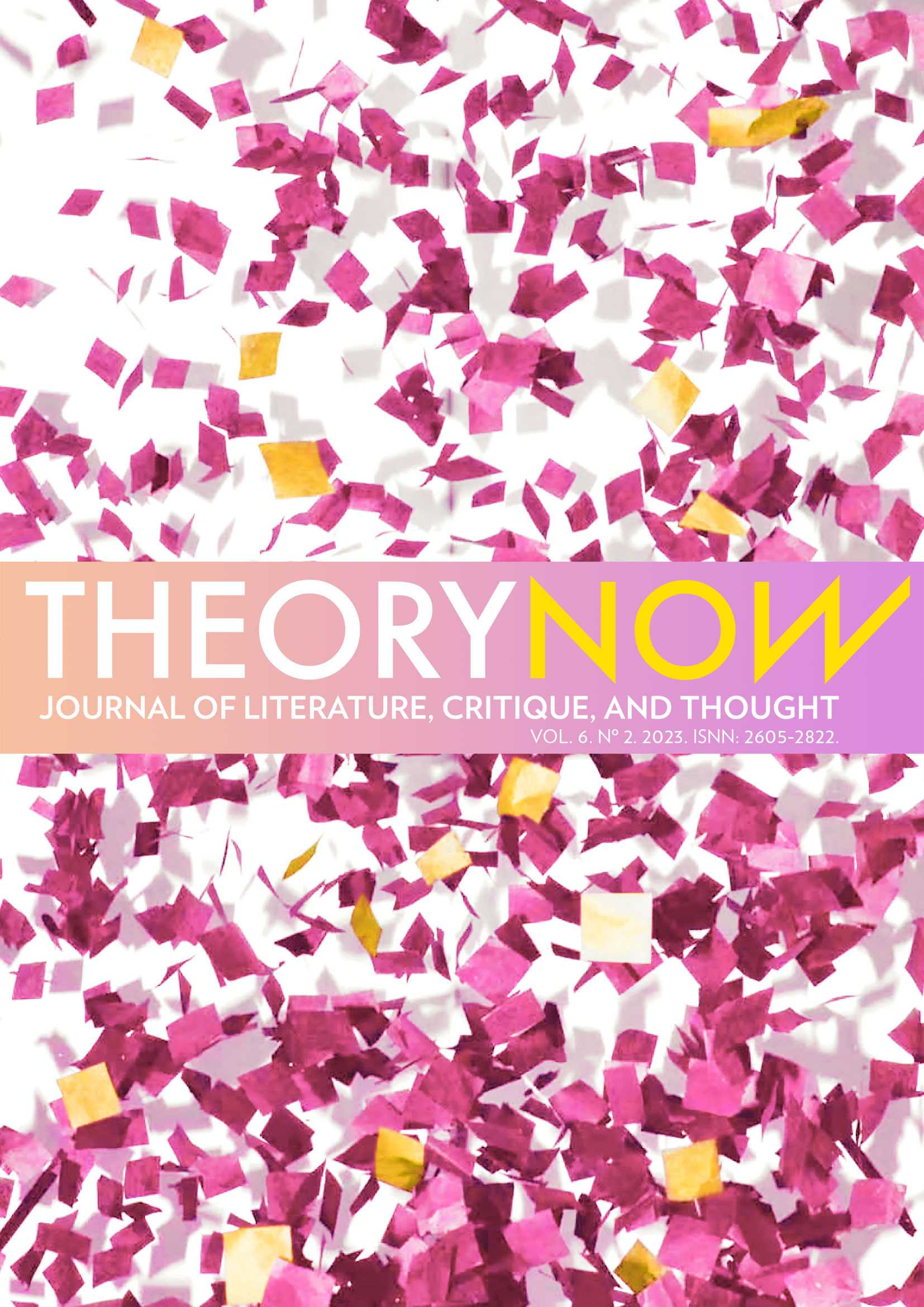The Sons of the City. A New Paradigm of Living in Giorgio Agamben’s Work.
DOI:
https://doi.org/10.30827/tn.v6i2.27759Keywords:
Giorgio Agamben, Citizenship, Deactivation, Political Ontology, UtopiaAbstract
This article examines, from an archaeological perspective, the dispositif of citizenship and its presence in the work of Giorgio Agamben. The article begins with an investigation of the discourses around the Athenian autochthonous myth that have intervened in the formation of the dispositif of citizenship. The centrality that Agamben grants to citizenship as a guiding concept of Western politics allows us to examine the place that it occupies in his work, not only as a diagnosis, but also as a prescriptive exercise of a new politics. Finally, the article studies some of the proposals that we can find on the deactivation of citizenship in different places of the work of the Italian philosopher.
Downloads
References
Agamben, Giorgio. Homo sacer: El poder soberano y la nuda vida. Valencia, Pre-Textos, 1998.
____. Estado de excepción: Homo sacer II, 1. Valencia, Pre-Textos, 2004.
____. Infancia e historia: Destrucción de la experiencia y origen de la historia. Buenos Aires, Adriana Hidalgo editora, 2007.
____. Medios sin fin: Notas sobre la política. Valencia, Pre-Textos, 2011.
____. El uso de los cuerpos. Buenos Aires, Adriana Hidalgo editora, 2017.
Arendt, Hannah. Tiempos presentes. Barcelona, Gedisa, 2002.
____. Los orígenes del totalitarismo. Madrid, Alianza, 2019.
Demóstenes. “Discurso fúnebre”. Discursos políticos, vol. III. Madrid, Gredos, 1985.
Di Cesare, Donatella. Stranieri residenti: Una filosofia della migrazione. Torino, Bollati Boringhieri, 2017.
Esposito, Roberto. Immunitas: Protección y negación de la vida. Buenos Aires, Amorrortu, 2005.
____. Dieci pensieri sulla politica. Bologna, Il Mulino, 2011.
Ferrajoli, Luigi. Derechos y garantías: la ley del más débil. Madrid, Trotta, 2010.
García López, Daniel J. “Teoría herida del derecho puro”. Filosofía de la Historia y feminismos, Magda Lasheras (ed.), Madrid, Ed. Dykinson, 2020, pp. 37-61.
Heródoto. Historia, vol. VIII-IX. Madrid, Gredos, 1989.
Homero. Ilíada. Madrid, Gredos, 1996.
Lisias. “Discurso fúnebre en honor a los aliados corintios”. Discursos. Madrid, Gredos, 1998.
Madorrán, Carmen. “El Quijote como utopía necesaria: la mirada de Adolfo Sánchez Vázquez”. Edad de Oro, XXXIV, 2015, pp. 85-97. https://doi.org/10.15366/edadoro2015.34.005
Ortiz, Irene. “Italian Thought: los comunes y el uso”. Isegoría, 66, 2022, e14. https://doi.org/10.3989/isegoria.2022.66.14
Pausanias. Descripción de Grecia, vol. VII-X. Madrid, Gredos, 2008.
Platón. “Menéxeno”. Diálogos, vol. II. Madrid, Gredos, 1987.
Downloads
Published
How to Cite
Issue
Section
License
Theory Now. Journal of Literature, Critique, and Thought is an immediate open-access publication which is available at no cost for readers and authors alike. Authors are not charged any kind of fee for the editorial processing of their articles. Reading, downloading, copying, distributing, printing, searching, linking or reusing all published articles for non-commercial uses is allowed on the condition of citing the author, the journal and the editing body. All intellectual material published in this journal is protected under a Creative Commons Attribution-NonCommercial 3.0 Spain license.
Dissemination of the articles in social (Facebook, Twitter, Linkedin, etc.) and scientific networks (ResearchGate, Academia.edu, etc.), public repositories at universities and other institutions, blogs, personal or institutional websites, Google Scholar, ORCID, ResearchID, ScopusID, etc. is strongly encouraged. In all cases, the intellectual property of the articles and any possible monetary profits derived from them belong exclusively to the authors.













